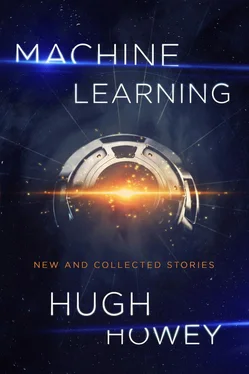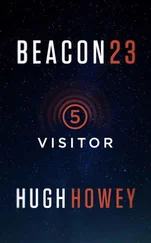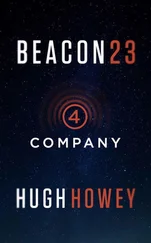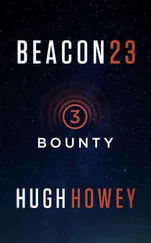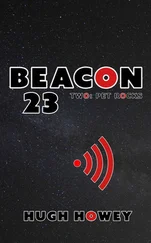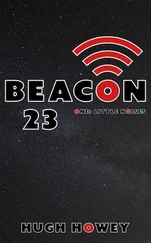Living in the city in the real world, Jamie and I don’t have room for a garden. But after hours of running around in this game, figuring out how to control my character, just trying not to die over and over, looking for something to do while feeling trapped at home with April every day, I stumbled onto this place. Really, I was guided here. Any other way you go, people die. If people don’t die, you end up here. It’s that simple.
“This is wild,” Jamie says, his voice subdued.
“You should have seen it when I first got here,” I tell him. “It was all weeds and brown dirt. You have to buy flowers and vegetables out front and plant them in here. And if you don’t keep them watered, they’ll go away.”
I select the first canteen and use it in front of the nearest planter. It makes a gurgling noise, and the flowers straighten a little. They seem to brighten. Jamie is dumbfounded, and I see the garden through his eyes, with all that color coming at once, rather than gradually, as I’ve watched it unfold. All of the city is white crumbling walls, brown dirt, and the black char of fire and explosion. The only color to be found is the foul splattering of red around the bodies when something goes horribly wrong. Here, all the colors dance together. They sway in the breeze, a kaleidoscope of hues.
“It’s crazy they would even put this in here,” Jamie says. “Maybe to make the Predator strike more meaningful, or something?”
I water the second planter. And then the third, which is full of peppers and beans.
“And the plants go away if you don’t water them?” Jamie asks.
“They wilt,” I say.
“But how does it remember? How do you save the game without getting to the exfil point?”
“What’s the exfil point?” The word sounds familiar. I recall the loud sergeant yelling something about that once.
“It’s where you get extracted. After the air strikes. If you die before you get there, you have to start over. And if the time runs out, the level just ends and you have to start over.”
“Oh, yeah. That’s what happens.” I water the last planter, then take out the rifle and use the knife to dig out weeds. The knife on the end of the barrel is also used to make furrows during the planting. “At some point, while I’m here in the garden, the game just ends. But I never play for more than an hour anyway.”
“But it remembers what you did,” Jamie says, almost to himself.
“I guess.”
When I’m done with the weeding, I step back to admire the garden. I could pick the tomatoes now and sell them to Hakim, but if they go another day or two, I’ll get more for them. It’s so hard to wait. And just looking at them makes me want to go to the kitchen and slice the ones from the market and make a sandwich.
“So this is all you do?” Jamie asks. He laughs to himself. “You play this game to grow flowers?”
“Not just that,” I say. “I also scrubbed all the graffiti off the walls in here.” I turn the character around to show him. “And I picked up all the trash and took the loose rubble that was in that corner and hauled it through the shop and to another alley.”
“You cleaned graffiti,” Jamie mumbles, like he doesn’t believe me.
“Yeah. Every wall was covered. It comes back now and then. There’s just this one spot where it won’t come off.”
I go to show him, when there’s a low grumble in the game. I would have thought it was his stomach or April messing her diaper if I hadn’t heard it a hundred times.
“It always thunders,” I say, “but it never rains.”
“That’s not thunder,” Jamie tells me. “It’s the air strikes across town. You’re so far out of position—”
He stops as I find the place on the wall with the black paint and try scrubbing it away. My character makes the right animation, rubbing a rag over the spot, but the marks remain.
“What is that?” Jamie asks. He cradles April and leans forward, studying the TV.
“It’s the only spot I can’t get clean,” I say. “There were other markings over the top of this. Everywhere, really. Once you get the flowers and vegetables up and sell enough to Hakim, he gives you a bucket and a rag and asks you to clean up back here. If you do, you get squash seeds and beans. But these marks won’t go away. I keep wondering what might happen if I get all the walls perfectly clean—”
“Those are numbers,” Jamie says.
I make my character stop scrubbing. The marks look like Chinese to me. Little clusters of hashes.
“You read Arabic?” I ask, even though I know—like I know where every misplaced thing of his is at any moment—that my husband does not understand an ounce of Arabic.
“No, it’s Vollis. An alien language. After the eighth mission, the Vollis invade and you start using their plasma guns and sonic grenades to really kick some ass—”
I shoot him a look and make sure April is still asleep. He mouths his apology for cursing around her.
“Anyway,” he whispers, “your ammo with those weapons counts down in their language. Those marks spin like a clock. It’s easy to read. Do they ever change? Can you step back so we can see them all?”
I make the character step back. “I don’t think they change,” I tell him.
“What are they doing on this level? The Vollis don’t invade until you get to Kabul.”
“Why are there aliens in this game?” I ask. Though I seem to recall seeing him fight aliens and zombies with his friends. I just assumed it was some other game.
“It’s ten digits,” he says. “Do you think that’s a phone number? Maybe it’s a phone number.”
I laugh. Jamie thinks every series of numbers in his games might be a secret number to call to unlock another level or an extra life or something. One of the friends he plays with is a guy named Marv that he called randomly, and when he explained why he called, it turned out Marv was a gamer. Now he’s another friend Jamie talks about like he’s known him since high school but has never actually met in the flesh.
“The first three numbers are three, one, seven,” Jamie says. “That sounds like an area code. I’m calling it.”
I try to talk sense into him, but Jamie passes me April. I do everything I can to keep her from waking while Jamie digs out his cell phone and moves closer to the screen, dialing the number.
He listens to it ring. And then, without warning, he hands it over to me.
“Here,” he says. “You found this place. You have to talk to them.”
“I don’t want to talk to some random person,” I say. I cradle April and turn my shoulder. Jamie sits down beside me and holds the phone close to my ear, but angled so he can hear as well.
“You talk,” he hisses.
The phone is ringing.
“I don’t want to—” I hiss back.
There is a click on the other end. I don’t want to have to tell someone why we called the wrong number. April stirs and kicks in my arms, waking up. I can’t let go of her to shut off the phone. Jamie has his arm around me, his head close to mine so he can hear. And then, before I can say hello, can apologize, can tell Jamie to hang up, a voice announces itself, low and ominous:
“Congratulations,” the voice says. “You’ve reached the Department of Defense. Is this Donna213?”
It takes me a moment to remember that this is my screen name.
I nod. Then manage to say, “Yes.”
“Good. Now listen to me very closely—”
“What is this?” I ask. “Some kind of joke?”
April starts crying. Jamie won’t hold the phone still. He’s covering his mouth with his other hand, his eyes wide and disbelieving.
“Not a joke, ma’am,” the man says. “Listen to me carefully. Your country needs you.”
Читать дальше
